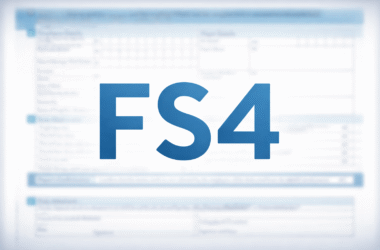Understanding Malta’s tax system involves knowing about yearly reporting, corporate taxes, value-added tax (VAT), and personal income taxes. In this article, we’ve shared a straightforward overview of how to help make sure your business in Malta meets all the necessary tax rules and reporting needs.
Annual Reporting Requirements
Businesses in Malta must file their annual financial statements and tax returns within nine months from the financial year’s end.
- Companies with a fiscal year ending between January 1st and June 30th must submit tax returns by March 31st of the following year.
- For those whose fiscal year ends on July 31st or later, the deadline is nine months after the year-end.
Depending on the size of your company in terms of annual revenue and staff count, an audit may be required. The auditing standards are guided by the General Accounting Principles for Small and Medium-Sized Entities (GAPSME) along with the Maltese Companies Act.
Additionally, if your company qualifies for a stamp duty exemption under Article 47 of the Duty on Documents and Transfers Act (known as the DDT10 exemption), not only do you benefit from the exemption itself, but the deadline for tax payments is also extended. Instead of the standard 9 months, you will have up to 18 months after the financial year ends to make tax payments.
Corporate Income Tax
The standard corporate tax rate in Malta is 35%. However, through various refund options, the effective rate can potentially be reduced to as low as 5%.
Corporate tax returns and the final payment are due within nine months of the financial year-end or by March 31st of the following year, whichever is relevant based on the fiscal year. Additionally, provisional taxes are payable in three instalments: April 30th, August 31st, and December 21st.
VAT (Value Added Tax)
The VAT rate in Malta ranges from 0% to 18%. All VAT returns must be filed quarterly, with a deadline of the 15th of the second month following the quarter-end. Submissions should be made electronically, except for businesses with ten or fewer employees, which may file paper returns.
Failing to submit a VAT return on time incurs a penalty of €20 per day or 1% interest, whichever is higher. Late VAT payments will attract a fine of 0.06% interest per month. Both resident and non-resident businesses trading within the EU must submit Intrastat declarations if their arrivals or dispatches exceed €700. The deadline for Intrastat returns is the 10th of the month following the reporting period.
Neither EU nor non-EU businesses selling in Malta are required to appoint a fiscal representative.
For further assistance, feel free to contact us and we will be happy to help.
Withholding Taxes
Malta does not impose withholding taxes on dividends, interest, and royalties, whether paid to residents or non-residents. However, specific rules may apply to dividends received by residents, highlighting the importance of consulting with a tax professional to understand these nuances.
Personal Income Tax
Individuals in Malta are subject to a personal income tax rate of 35%. Personal income tax returns and final payments are due by the end of June each year. Like corporate taxes, personal provisional tax payments are also split across three dates:
- April 30th: 20%
- August 31st: 30%
- December 21st: 50%
These payment structures may vary depending on each individual’s fiscal circumstances.
Conclusion
Following tax rules in Malta is key for any business. This means you need to file reports on time, pay corporate taxes, handle VAT, and take care of personal income taxes.
To make sure you are doing everything right, refer to a tax professional who can give advice that fits your business’s specific needs.







